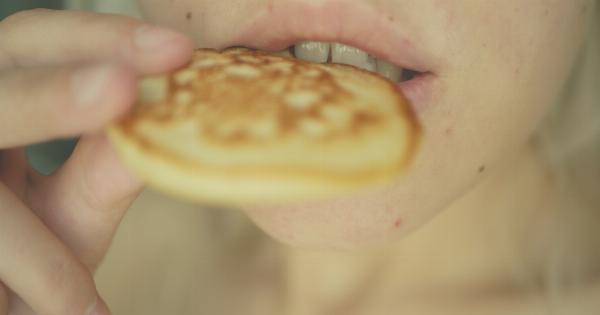Kids love snacking and trying out new foods. However, some of the foods that they eat can cause serious damage to their oral health. As parents, guardians, or caretakers, it’s important to be aware of foods that are harmful to their teeth and gums.
Here are the top dangerous foods that you should avoid or consume in moderation:.
Sugary foods and drinks
Sugar is one of the main causes of tooth decay in kids. The bacteria in the mouth feed on the sugar and produce acid that attacks the tooth enamel. This can lead to cavities, gum disease, and other oral health issues.
Sugary foods and drinks to avoid or limit include soda, candy, cookies, cakes, pastries, ice cream, and fruit juices.
Sticky foods
Foods that are sticky tend to stay in the mouth longer, which increases the chances of tooth decay. Examples of sticky foods include gummies, taffy, caramel, dried fruit, and granola bars.
If your child eats these foods, make sure they rinse their mouth with water or brush their teeth afterwards.
Acidic foods
Acidic foods can erode the tooth enamel, making the teeth more susceptible to decay and sensitivity. Examples of acidic foods include citrus fruits, pickles, tomatoes, and vinegar.
You don’t have to completely avoid these foods, but make sure your child doesn’t consume them excessively.
Chewy and crunchy foods
Chewy and crunchy foods can damage the teeth if they are too hard or sharp. For example, popcorn kernels, hard candies, ice cubes, and bones can cause cracks or chips in the teeth.
Similarly, chewy foods such as beef jerky or rawhide chews can stick to the teeth and cause tooth decay.
Carbonated drinks
Carbonated drinks, including soda, energy drinks, and carbonated water, can be harmful to teeth because they contain high amounts of sugar, acid, and caffeine.
The carbonation in these drinks also makes them highly acidic, which can wear down tooth enamel.
Junk food
Most junk food is loaded with sugar, salt, and unhealthy fats that can harm the overall health of children, not just their oral health. Eating a balanced and nutritious diet is essential for maintaining healthy teeth and gums.
Fruit snacks
Fruit snacks, although marketed as healthy snacks for kids, can be very harmful to their oral health. These snacks are typically high in sugar and can stick to the teeth, leading to cavities and tooth decay.
Fresh fruits are a healthier alternative to fruit snacks.
Chips and crackers
Chips and crackers are starchy foods that can stick to the teeth and promote bacterial growth. This can lead to the formation of plaque and tooth decay. Choose healthier snacks such as fresh vegetables, plain yogurt, or cheese slices instead.
Sports drinks
Sports drinks are popular among kids who participate in sports or other physical activities, but they can be harmful to their oral health. These drinks are high in sugar and acid, which can weaken the tooth enamel and cause cavities.
Encourage your child to hydrate with water instead.
Citrus fruits
Although citrus fruits are rich in vitamin C and other nutrients, they are also highly acidic. This acid can erode tooth enamel, leading to tooth decay and sensitivity.
Encourage your child to rinse their mouth with water after eating citrus fruits, or simply have them eat these fruits in moderation.
Conclusion
By avoiding or consuming these foods in moderation, you can help your child maintain healthy teeth and gums. Encourage them to brush their teeth twice a day, floss daily, and visit the dentist regularly for check-ups and cleanings.
With proper oral care and a nutritious diet, your child can have a happy, healthy smile for life.





























